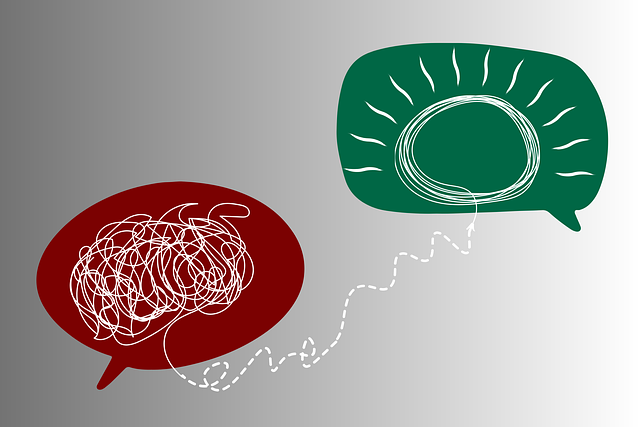Denver Cancer Issues Therapy leads the way in combatting cancer through cutting-edge treatments, offering state-of-the-art care accessible to residents. Beyond physical healing, the city provides specialized counseling services for emotional support post-loss, addressing bereavement and mental illness related to cancer. With a range of therapeutic options from CBT to existential counseling, Denver's psychological community caters to diverse needs, prioritizing risk management and creating safe spaces. Effective therapies like Denver Cancer Issues Therapy guide individuals through grief processing, mindfulness practices, and group support, fostering healing and resilience after profound loss.
“Navigating loss, grief, and bereavement is a complex journey, especially when facing cancer-related trauma. This comprehensive guide explores these profound experiences, offering insights into the healing power of counseling. We delve into the various stages of loss, with a specific focus on Denver’s psychological therapy landscape tailored to cancer support. By highlighting effective therapies and post-loss counseling strategies, this article aims to empower individuals in their journey towards resilience, ensuring they find the necessary support during and after cancer-related bereavement.”
- Understanding Loss, Grief, and Bereavement: A Comprehensive Overview
- The Role of Counseling in Navigating Cancer-Related Bereavement
- Denver's Psychological Therapy Landscape for Cancer Support
- Effective Therapies and Interventions for Grieving Individuals
- Fostering Healing and Resilience: Post-Loss Counseling Strategies
Understanding Loss, Grief, and Bereavement: A Comprehensive Overview

The Role of Counseling in Navigating Cancer-Related Bereavement

When a loved one passes away due to cancer, the journey of bereavement can be an intensely challenging and complex process. This is where counseling plays a pivotal role in helping individuals navigate their emotions and find coping mechanisms. In Denver, where cancer-related issues are prevalent, access to specialized therapy services has become increasingly important. Counseling offers a safe space for people to express their grief, whether it’s acute or chronic, allowing them to work through the stages of bereavement at their own pace.
Through Denver Cancer Issues Therapy, professionals aim to reduce the mental illness stigma often associated with seeking help and encourage emotional regulation strategies. By fostering positive thinking and providing support, counseling sessions enable clients to adapt to life after cancer loss. This process involves acknowledging and accepting one’s feelings, whether it’s anger, sadness, or even relief, contributing to a healthier psychological landscape.
Denver's Psychological Therapy Landscape for Cancer Support

Denver’s psychological therapy landscape offers a vibrant and diverse range of support for individuals facing cancer-related challenges. Many mental health professionals in the city specialize in grief counseling, recognizing the unique needs of those navigating loss and bereavement. This specialized care is crucial for emotional healing processes, especially within the context of Denver’s growing community of cancer survivors and their loved ones.
The city’s therapy scene caters to various therapeutic approaches, from cognitive-behavioral therapy (CBT) to existential counseling, ensuring individuals can find suitable support tailored to their mental wellness needs. Moreover, many practitioners emphasize the importance of risk management planning for mental health professionals, fostering a safe and supportive environment for cancer patients and caregivers.
Effective Therapies and Interventions for Grieving Individuals

In addressing loss, grief, and bereavement, various effective therapies and interventions can aid individuals in navigating their emotions and finding healing. One such approach is Denver Cancer Issues Therapy, tailored to support those facing cancer-related losses. This therapy focuses on helping clients process their grief by exploring feelings of sadness, anger, and fear through individual or group sessions. Trained therapists employ techniques like cognitive-behavioral therapy (CBT), mindfulness practices, and exposure therapy to assist in managing intense emotions and promoting healthy coping mechanisms.
Beyond individual therapy, Community Outreach Program Implementation plays a vital role in supporting grieving individuals. Local support groups facilitate connections among people experiencing similar losses, fostering a sense of belonging and understanding. Additionally, Communication Strategies and Conflict Resolution Techniques are essential tools for processing grief. Effective communication allows individuals to express their emotions honestly while resolving conflicts that may arise during the grieving process, ensuring a more supportive environment for healing.
Fostering Healing and Resilience: Post-Loss Counseling Strategies

After experiencing a significant loss, such as the passing of a loved one due to Denver cancer issues, individuals often require specialized support to navigate the complex emotions that arise. Post-loss counseling plays a pivotal role in fostering healing and building resilience. Through structured therapy sessions, mental health professionals guide clients through the grieving process, offering them the tools they need to cope effectively. This supportive environment encourages expression of feelings, fosters understanding of these emotions, and promotes healthy coping mechanisms.
The strategies employed in post-loss counseling cater to each individual’s unique needs. Mental health awareness advocates for open dialogue, ensuring that individuals feel safe to explore their grief without judgment. Crisis intervention guidance is tailored to address acute emotional distress, providing immediate support during challenging periods. Moreover, risk management planning for mental health professionals ensures that practitioners are equipped with the latest techniques to offer safe and effective counseling services, enhancing client outcomes in Denver cancer-related bereavement cases.
In light of the profound impact loss, grief, and bereavement can have on individuals navigating cancer-related challenges, understanding the role of counseling becomes paramount. Denver’s psychological therapy landscape offers a vibrant tapestry of support for those dealing with cancer issues. Through effective therapies and interventions, post-loss counseling strategies foster healing and resilience, providing crucial tools to help folks navigate this complex journey. For those seeking Denver cancer issues therapy, exploring these resources can be a game-changer, offering the necessary support to heal and move forward.













